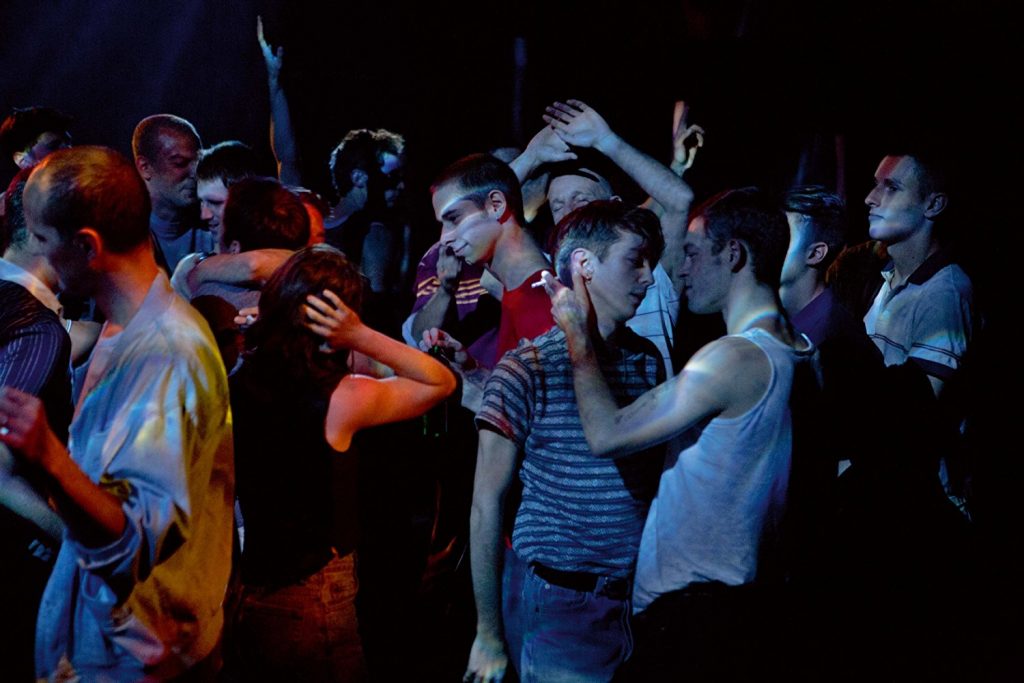120 BPM is a film you tend to admire rather than love. Robin Campillo’s film deals with the rise of Act Up in France in the late 80s and early 90s as the activist group tackled the complacency of government, medical and pharmaceutical establishments in dealing with the crisis. If the film veers towards being a polemic at times, it contains many scenes that remind one of the anguish and rage the early years of the epidemic unleashed across the LGBT community world-wide.
Anyone who thinks protestors just blindly show up to cause trouble will have their consciousness seriously expanded after watching this film. Campillo’s camera plunges the viewer into the centre of the practical and ideological debates that drive organisations like Act Up. Like Ken Loach’s Land and Freedom, 120 BPM features several scenes of young adults in meetings refining and discarding ideas and arguments as they move towards political action. When an intervention at a medical conference doesn’t go as planned, the activists hold a post-mortem to determine what went wrong.
In the second half of the film, the focus centres on two lovers in the group, Nathan and Sean, who face the grim reality that one of them is going to die from the disease. The final scenes between the two movingly illustrate how idealism (and the rhetorical grandstanding that can divide even comrades) in such circumstances gives way to simple acts of selflessness and kindness.
The Moroccan born Campillo is best known as a frequent co-writer with director Laurent Cantet on such films as Time Out, Heading South and The Class. 120 BPM was the popular winner of the Grand Prix at the 2017 Cannes Fllm Festival and while some may feel such an accolade was premature, it does confirm that Campillo is a new director who will likely go from strength to strength in the future.
If Campillo has a signature, it is his unique ability to bring film goers into the hearts and minds of characters fixed on a specific way of seeing the world and acting out that belief system. In 120 BPM, we are reminded that it was not long ago that “AIDS” was considered a death sentence and that recent medical advances that allow HIV positive individuals to live normal lives were bitterly fought by the communities most affected. If the film leaves us with any final message, it is that pro-gress is all too often a battle fought and won by an unblinking minority.
Director: Robin Campillo
Writers: Robin Campillo, Philippe Mangeot
Stars: Nahuel Pérez Biscayart, Arnaud Valois, Adèle Haenel
